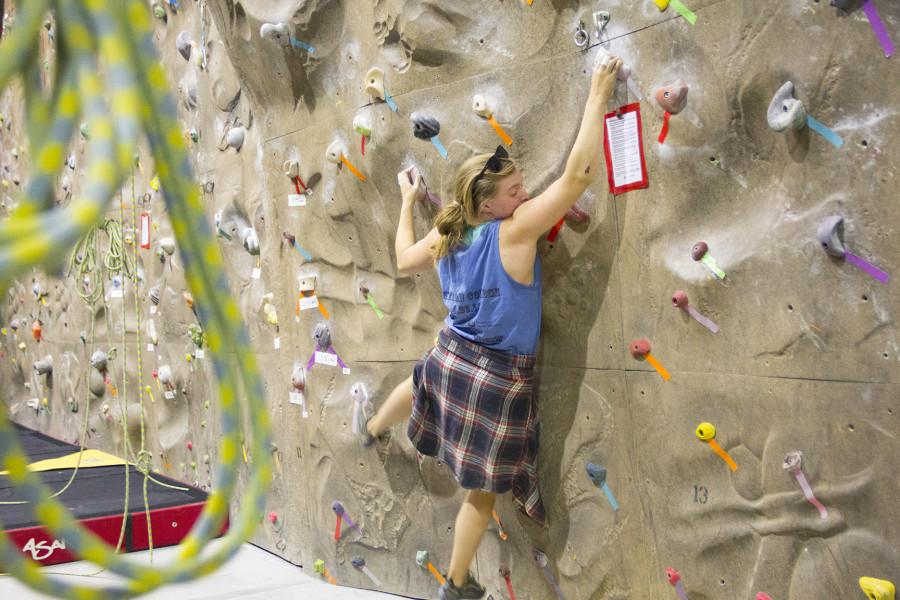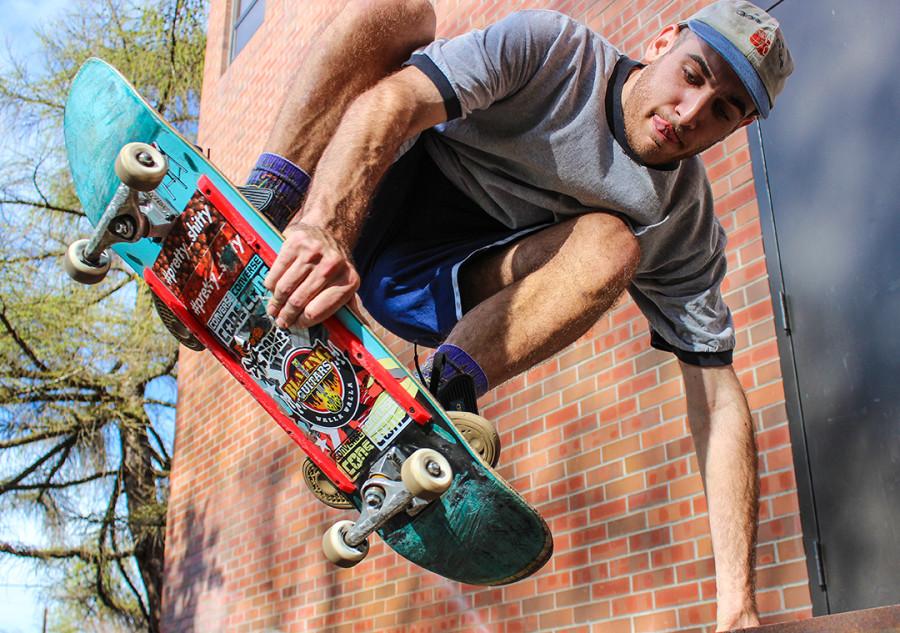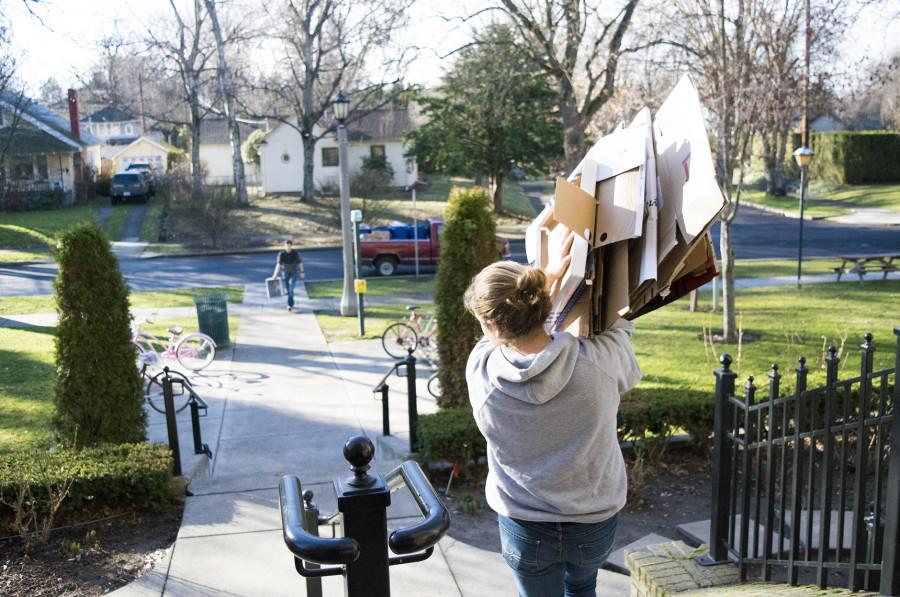Walla Walla’s wine industry is certainly a nice addition to the town for parents and seniors, but its emergence and growth also hold academic promise.
Professor Kevin Pogue of the geology department has a sign hanging from his office door emblazoned with the pun, “Terroirist Headquarters.” Though he has been teaching geology at Whitman since 1990, he has been involved in the study of terroir for the past sixteen years. Terroir as a science refers to the soil composition or compositions of a given region, which are affected by a number of factors, and how that soil composition affects the growth of crops such as wine grapes.

“Around ’96 or ’97, people really started showing up here and the industry started expanding,” said Pogue. “People just started knocking on my door and calling me up asking me to provide insight into where certain soils might be found or what the climate was like just because I was a local geologist.”
Pogue offers a special topics class to interested seniors in alternate years, and goes into overload to make it happen out of a passion for the subject that goes beyond geology. Over the years, he has managed to bring his love of terroir to the classroom in a two-credit class.
“We basically deconstruct the whole idea of terroir and talk about what the philosophy of terroir is, the origin of the word, what it means to the French,” said Pogue. “Once we sort of define it … we take it apart and talk about physical versus cultural terroir.”
In this class, students do more than just taste some wine––they learn about the entire wine experience.
“A lot of people think it’s a wine tasting class, but it’s [actually] anything but,” said Pogue.
Though he disagrees that Whitman is incredibly involved in working with the wine industry, Pogue notes that his course is just one of a bundle of Whitman College academic pursuits that have tapped into Walla Walla’s wine culture over the years. Another pursuit looked at wine economics a few years ago.
“We had a wine economist here for a while named Karl Storchmann … he was [the managing editor] of the journal Wine Economics, so that was based out of Whitman for a while,” said Pogue. “I think I am the only person doing sort of direct wine-related research at Whitman right now.”
The class itself is an interdisciplinary endeavor by design, only providing limited spaces in the class for geology majors.
“Every year there are a couple students who are interested in the wine industry that take it [because] they just want more exposure to wine and want to learn about terroir, students who are working in tasting rooms now or have a parent or a relative who’s in the wine business or thinking about maybe pursuing that,” said Pogue.”I only let half of the students be geology majors.”
Pogue hopes to expand the program to take advantage of the resources around us and to provide a more hands-on experience for his students.
“I think this year I am going to propose to upgrade the class to a real class, give it a number and teach it on a regular basis, probably as a three-credit class,” said Pogue. “We could go on field trips and see the terroir, the different soils … it would be during crush, wine making time, so we could actually go to the wineries while they’re making wine, talk to wine makers about how terroir they are.”
Walla Walla Community College has also taken advantage of the educational possibilities of the burgeoning industry by establishing a two-year viticulture and enology program.
Myles Anderson, director of the community college’s viticulture and enology program, came to Walla Walla from Denver in 1997 to continue teaching at the Walla Walla Community College. He was an avid wine enthusiast, and helped operate Walla Walla Vintners on the side of his teaching career.
When he was set to retire, he was charged by the community college’s president to take on founding the viticulture and enology school.
“[He wanted to see if] the college [could create] a two-year program that would have a hands-on and practical curriculum,” said Anderson in an email. “The decision was an easy one for me to make. This was a dream come true: My vocation had married my passion.”
After the program’s launch in 2000, the hands-on portion of the program took place at Anderson’s vineyard as Anderson attempted to grow the program.
“We began the search for instructors and a local winery to host us until our facility was completed,” said Anderson in an email. “The students made wine at Walla Walla Vintners until the Wine Center was completed.”
In 2003, the community college opened one of the first nonprofit commercial teaching wineries, College Cellars, which can be seen on Isaacs Street on the way out to the airport.
“Students are crafting wonderful and affordable wines and sell them at the Wine Center to help finance the teaching winery,” said Anderson in an email.
By pairing teaching with a hands-on experience with winemaking and running a winery, the program is successful in unleashing its graduates in the community.
“We are proud to have 145 degreed graduates who are 98 percent employed in the wine industry throughout the Northwest and beyond,” said Anderson in an email.
Pogue sees the value of this kind of work, but recognizes that it would not fit in at Whitman College.
“We don’t have a viticulture program [because] that’s not a very liberal arts sort of thing, learning how to make grapes,” said Pogue.
These are but a few of the educational prospects derived from Walla Walla’s wine industry. From practical education to interdisciplinary work, wine isn’t just something to enjoy with dinner or to taste in town. It’s a subject ripe for study.
















